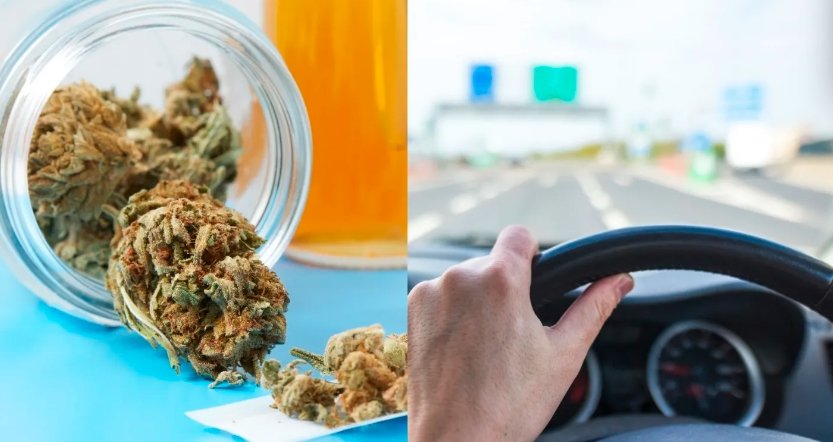A growing concern in Canada is the number of cannabis users who continue to drive while under the influence, despite knowing the risks involved. Research from Public Safety Canada in 2022 revealed that one in four cannabis users admitted to operating a vehicle while impaired. While this statistic has remained stable over the years, it underscores the ongoing challenge for authorities in managing road safety in a post-legalization landscape.
Cannabis-related impaired driving has become a key focus for the Canadian government, police forces, and public safety organizations. Despite the legal status of cannabis, the effects of the drug on motor skills and reaction time continue to pose significant risks to drivers, passengers, and other road users.
The Rise of Drug-Impaired Driving
Cannabis use and its impact on driving have been well-documented, but a shift in attitudes has been observed since its legalization. Cannabis-related driving incidents are becoming increasingly common, with studies showing that more drivers are willing to drive after using cannabis compared to alcohol. According to the Canadian Centre on Substance Use and Addiction, many drivers perceive themselves as capable of operating a vehicle safely while under the influence of cannabis, citing reasons such as:
- Not feeling impaired: Many users report feeling unaffected by cannabis, leading them to believe they can drive safely.
- Short distances: Some believe that if the journey is short, the risks are minimized.
- Lack of alternatives: In some cases, people drive because they lack other transportation options.
- Confidence in avoiding detection: There is a widespread belief that law enforcement is less likely to catch them driving under the influence of cannabis compared to alcohol.
However, these perceptions ignore the real risks associated with driving under the influence of cannabis, which can impair motor skills, reaction times, and decision-making abilities—all crucial elements of safe driving.

The Impact of Cannabis on Driving
Cannabis consumption affects the brain and body in several ways that can undermine a driver’s ability to operate a vehicle safely:
- Slower reaction time: Cannabis impairs the brain’s ability to react quickly to stimuli, which can be crucial when driving.
- Impaired short-term memory: Users may struggle to remember important driving instructions or to focus on immediate road hazards.
- Reduced concentration: Maintaining focus on the road can be difficult, especially in high-stress or complex driving situations.
- Inability to make quick decisions: Driving often requires snap judgments, and cannabis can impair this ability, making it harder to handle unexpected events on the road.
These effects are unpredictable and can have serious consequences, not only for the impaired driver but also for other road users, including pedestrians, cyclists, and other drivers.
Public Perception and Legal Response
Despite the fact that 26% of cannabis users have driven while impaired, public awareness of the risks remains high. A recent survey found that 86% of Canadians believe cannabis impairs a driver’s ability, and 82% believe it is unacceptable for people they know to drive high. This significant public support for zero-tolerance policies highlights the need for ongoing education about the dangers of impaired driving, even in the context of legalized cannabis.
In response to the rise in impaired driving charges, the Ontario Provincial Police (OPP) reported an increase in impaired driving offenses, with 11,142 charges laid in 2023—a 9% increase from the previous year. Impaired driving charges accounted for 6% of all road charges laid in Ontario in 2023, signaling a continued concern about cannabis and alcohol consumption behind the wheel.
Detection and Enforcement
Law enforcement agencies in Canada are equipped to detect impaired drivers using a variety of tools. Police officers are trained in Standard Field Sobriety Testing (SFST) and Drug Recognition Expert (DRE) protocols, both of which help officers identify signs of impairment. Additionally, approved drug screening devices can detect the presence of substances like THC, the psychoactive compound in cannabis, providing a valuable tool for detecting impaired drivers in real-time.
The availability of these testing methods is crucial in curbing impaired driving, as it ensures that authorities can enforce laws more effectively and help deter drivers from engaging in risky behavior.
Consequences of Driving High
Driving under the influence of cannabis can lead to serious legal consequences. Individuals found guilty of impaired driving can face:
- Criminal charges: Impaired driving is a criminal offense in Canada and can result in a criminal record.
- License suspension: A conviction can lead to a suspension of the driver’s license, significantly disrupting their ability to get around.
- Fines: Drivers caught impaired can face substantial fines, which vary depending on the jurisdiction.
- Prison time: In severe cases, especially for repeat offenders or those involved in accidents, impaired driving can result in prison sentences.
Given these potential consequences, it is essential for drivers to recognize the risks associated with cannabis use and refrain from driving when impaired.
The Ongoing Challenge of Cannabis and Driving
While cannabis legalization has been celebrated for its potential benefits, such as reducing the burden on the criminal justice system and providing economic opportunities, it has also presented new challenges for road safety. The findings of this study—showing that a significant portion of cannabis users continue to drive while impaired—highlight the need for continued public education and law enforcement efforts.
As cannabis use remains a part of the social fabric, ensuring that people understand the dangers of driving under the influence is crucial for keeping Canada’s roads safe for everyone.




